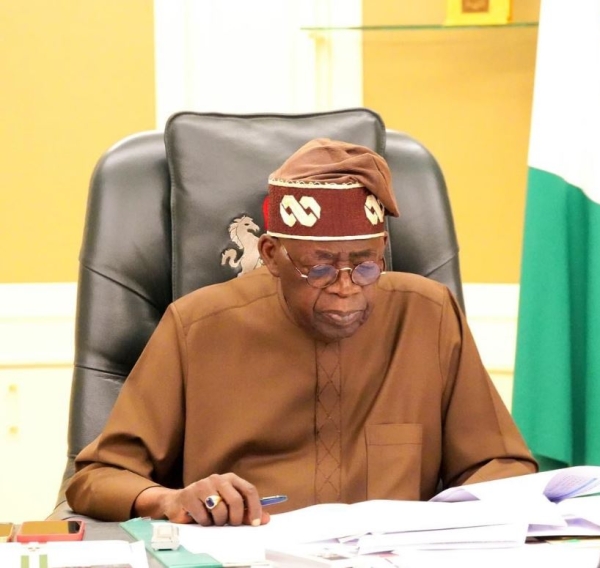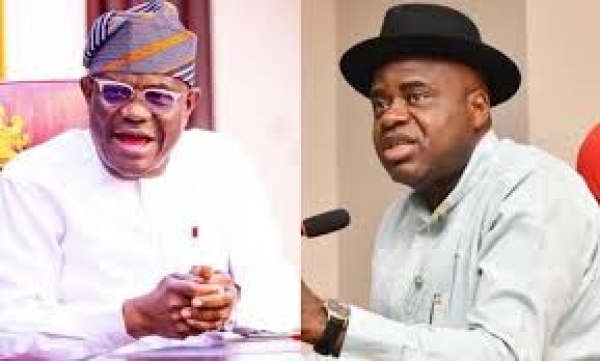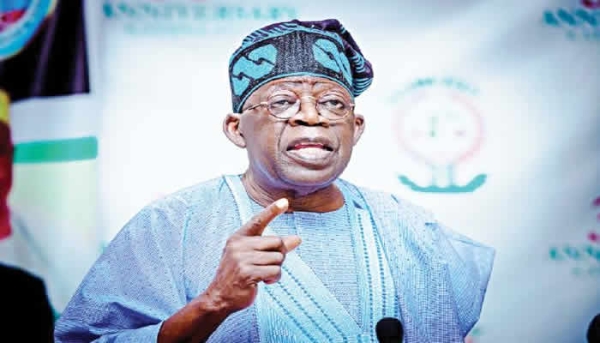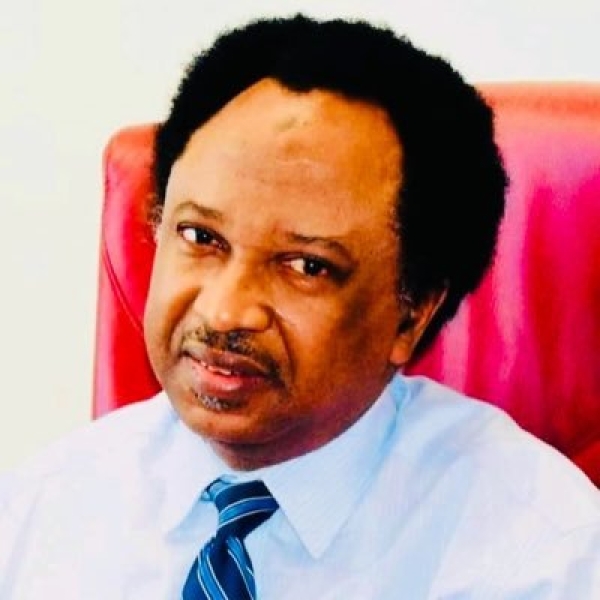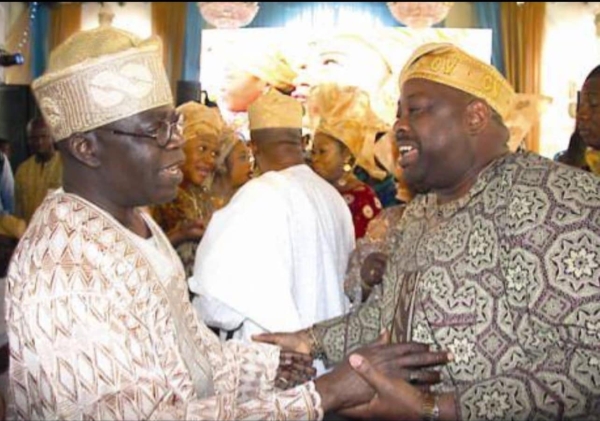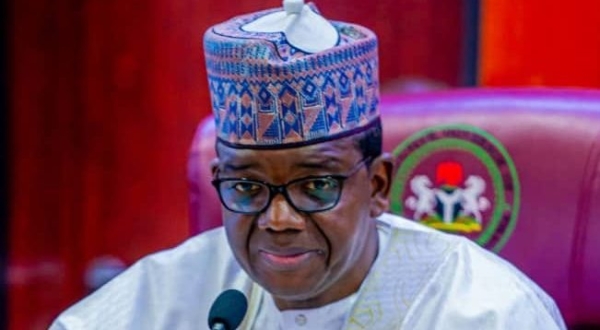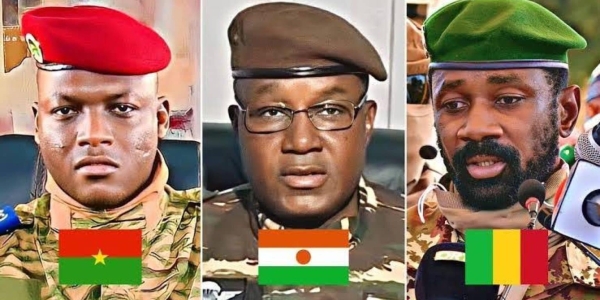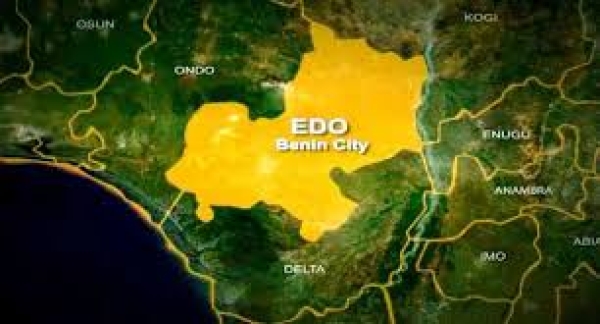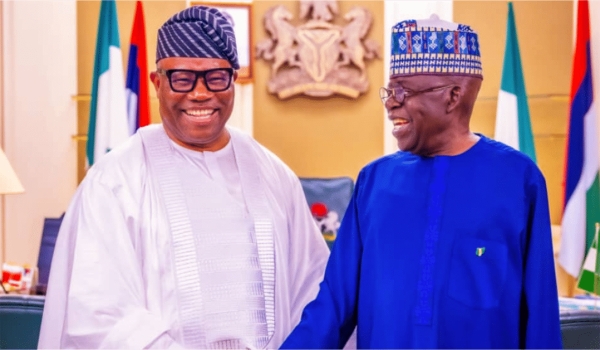TOP NEWS
Reuben's View
Latest News
Search
MOST READ
-
Akpoti-Uduaghan Lied, I Never Plotted Her Assassination - Akpabio
-
U.S. Gov’t Raises Concern Over Tribunal Judgment On Edo Guber Election
-
How We Produced Labour Surge That Powered Peter Obi – Utomi
-
Oil price drops to $65 per barrel — lowest level since April 2021
-
Hotels of horror: Shocking tales of staff colluding to murder guests
-
Africa must build industries, exporting raw materials is a door to poverty — Akinwunmi Adesina
-
Natasha’s Recall: We Don’t Trust INEC – SDP Spokesman
-
Man Sentenced To Life Imprisonment for Rape of 70-year-old Elderly Neighbour
-
Iran president fires deputy over expensive Antarctica trip
-
[OPINION] Tinubu, Atiku, and Argentina: United by Pain, Divided by Rhetoric - Farooq A. Kperogi
-
Nigerians Can Now Buy Food Without Struggle – Tinubu
831 times -
Concerns in Bayelsa As Gov Diri’s Supporters Fix Rally for Same Venue With Wike’s allies
612 times -
Edo Governorship Election Tribunal Judgment ‘Leaked’ Ahead Of Official Announcement - See Documents
582 times -
We won’t succumb: Anger trails fresh emergency rule declaration threat
581 times -
‘You Should Expect Me Back To Senate In 2027’ – Shehu Sani
542 times -
‘We’re Witnessing Something Worse Than Dictatorship, Please Don’t Kill Democracy’ – Dele Momodu Begs Tinubu
537 times -
Matawalle Paid Civil Servant ₦7,000 Instead Of ₦30,000 – Former Aide Alleges
537 times -
Mali, Burkina Faso, And Niger Impose 0.5% Levy On Imported Goods From Nigeria, Other ECOWAS Nations
525 times -
How They Murdered My Kano-bound Passengers In Edo — Truck Driver
512 times -
Akpabio Is Afraid Of Something, If Tinubu Says He Wants A Third Term, National Assembly Will Vote For Him’ – Dele Momodu
465 times








![[OPINION] The Uromi 16 And The Problem With Nigeria - Reuben Abati [OPINION] The Uromi 16 And The Problem With Nigeria - Reuben Abati](https://www.reubenabati.com.ng/cache/mod_bt_contentslider/848d0c6943c9a9cb7639e8f5640d2cbf-4b585f7414a3fc875b761851d4c5fcd4_XL.jpg)
![[OPINION] Breakfast With The Soludos - Reuben Abati [OPINION] Breakfast With The Soludos - Reuben Abati](https://www.reubenabati.com.ng/cache/mod_bt_contentslider/a98b5c30f61dcb10378fdba9f5e472ab-33b747862875f50d863e709f5955da5d_XL.jpg)
![[OPINION] The Emerging Coalition Against Tinubu/APC - Reuben Abati [OPINION] The Emerging Coalition Against Tinubu/APC - Reuben Abati](https://www.reubenabati.com.ng/cache/mod_bt_contentslider/ddd6416fbaa008a5bcbc568f0e3c8857-02972c9f0dee40a6ad85830afbb49758_XL.jpg)
![[OPINION] Nasir El-Rufai’s Defections: PDP, CPC, APC, SDP - Reuben Abati [OPINION] Nasir El-Rufai’s Defections: PDP, CPC, APC, SDP - Reuben Abati](https://www.reubenabati.com.ng/cache/mod_bt_contentslider/817d1e0c4d951b18f15f406968204870-61d46cc1859ac5d4f70406214a7d7e4f_XL.jpg)
![[OPINION] A World Of Godfathers - Reuben Abati [OPINION] A World Of Godfathers - Reuben Abati](https://www.reubenabati.com.ng/cache/mod_bt_contentslider/f282a08e8e116be2577cc430882505bc-6d66582218d28730d47a7b9a32e18004_XL.jpg)
![[OPINION] Babangida’s Book - Reuben Abati [OPINION] Babangida’s Book - Reuben Abati](https://www.reubenabati.com.ng/cache/mod_bt_contentslider/c8905774fa75570e79f747809f6c142f-4452414e756ce827f8bc4b72b9376062_XL.jpg)
![[OPINION] Ayo Adebanjo and Alaperu Basibo: In Requiem - Reuben Abati [OPINION] Ayo Adebanjo and Alaperu Basibo: In Requiem - Reuben Abati](https://www.reubenabati.com.ng/cache/mod_bt_contentslider/32644a58ca6a6a9730d34e04e0b971d4-29f647f2f922ae7f6d08ba2b3025e7df_XL.jpg)
![[OPINION].The Coming Food Revolution In Lagos - Reuben Abati [OPINION].The Coming Food Revolution In Lagos - Reuben Abati](https://www.reubenabati.com.ng/cache/mod_bt_contentslider/a460cd374cf73b084bed0ea4a95f3470-f0e6dbf155e463f366df4402ca7102d3_XL.jpg)
![[OPINION] From Trump to Grammy Blues - Reuben Abati [OPINION] From Trump to Grammy Blues - Reuben Abati](https://www.reubenabati.com.ng/cache/mod_bt_contentslider/68a7f0df2b79f07ef9aa4da35fd3551f-a59719664df1d85791c7a182eca4b6a0_XL.jpg)
![[OPINION] Tanker Explosions, Avoidable Deaths - Reuben Abati [OPINION] Tanker Explosions, Avoidable Deaths - Reuben Abati](https://www.reubenabati.com.ng/cache/mod_bt_contentslider/d2e1e077711de20c5c40eeecc39c245f-8aaa25cc2241805d2decc75cc3486ec5_XL.jpg)
![[OPINION] The Second Coming Of Donald Trump - Reuben Abati [OPINION] The Second Coming Of Donald Trump - Reuben Abati](https://www.reubenabati.com.ng/cache/mod_bt_contentslider/3b214f2ffde1cfc7a1b2cf68cbf556f8-e0b50b219590b369fb715ce040483314_XL.jpg)
![[OPINION] Of Wildfires, Los Angeles, Obasa And Other Human Stories - Reuben Abati [OPINION] Of Wildfires, Los Angeles, Obasa And Other Human Stories - Reuben Abati](https://www.reubenabati.com.ng/cache/mod_bt_contentslider/2db7a112c548580c2fe54624dacb7951-419b0256c841d7d9b34a61d986a2e894_XL.jpg)
















![[OPINION] Nigeria: A country run haphazardly - Ugoji Egbujo](https://www.reubenabati.com.ng/media/k2/items/cache/d2d472ede4ca6b710531a375bb18707e_XL.jpg?t=-62169984000)



![[OPINION] Tinubu, Atiku, and Argentina: United by Pain, Divided by Rhetoric - Farooq A. Kperogi](https://www.reubenabati.com.ng/media/k2/items/cache/f8dce5cb80263ca6b540fcad159b8542_XL.jpg?t=-62169984000)
![[OPINION] Between Banks’ Soaring Profits and Economic Realities - Obinna Chima](https://www.reubenabati.com.ng/media/k2/items/cache/49b81d144a6a09f8a1fd212e4808016f_XL.jpg?t=-62169984000)
![[OPINION] Akpabio and the Price of Loyalty - Clementina Daika](https://www.reubenabati.com.ng/media/k2/items/cache/bfe599948947e2487226cf2840df48d5_XL.jpg?t=-62169984000)

![[PRESS RELEASE] Reports of Atiku Abubakar’s Resignation from PDP Are Malicious Lies and a Political Hatchet Job](https://www.reubenabati.com.ng/media/k2/items/cache/f212bb1e44fe8e2c6f99f42e384c30bd_XL.jpg?t=-62169984000)






























![[OPINION] Nigeria: A country run haphazardly - Ugoji Egbujo [OPINION] Nigeria: A country run haphazardly - Ugoji Egbujo](https://www.reubenabati.com.ng/cache/mod_bt_contentslider/bd8c2edc76a4c0f82cf7c4e568ae5322-d2d472ede4ca6b710531a375bb18707e_XL.jpg)



![[OPINION] Tinubu, Atiku, and Argentina: United by Pain, Divided by Rhetoric - Farooq A. Kperogi [OPINION] Tinubu, Atiku, and Argentina: United by Pain, Divided by Rhetoric - Farooq A. Kperogi](https://www.reubenabati.com.ng/cache/mod_bt_contentslider/752dcfe50440f2863b33db9c53f11c76-f8dce5cb80263ca6b540fcad159b8542_XL.jpg)
![[OPINION] Between Banks’ Soaring Profits and Economic Realities - Obinna Chima [OPINION] Between Banks’ Soaring Profits and Economic Realities - Obinna Chima](https://www.reubenabati.com.ng/cache/mod_bt_contentslider/770c846305a238f8db1287c6e154e66e-49b81d144a6a09f8a1fd212e4808016f_XL.jpg)
![[OPINION] Akpabio and the Price of Loyalty - Clementina Daika [OPINION] Akpabio and the Price of Loyalty - Clementina Daika](https://www.reubenabati.com.ng/cache/mod_bt_contentslider/c7e7cc8dca04d56fb06939018942d1aa-bfe599948947e2487226cf2840df48d5_XL.jpg)

![[PRESS RELEASE] Reports of Atiku Abubakar’s Resignation from PDP Are Malicious Lies and a Political Hatchet Job [PRESS RELEASE] Reports of Atiku Abubakar’s Resignation from PDP Are Malicious Lies and a Political Hatchet Job](https://www.reubenabati.com.ng/cache/mod_bt_contentslider/e52d43d938b0e3c0c182075461673853-f212bb1e44fe8e2c6f99f42e384c30bd_XL.jpg)


















![[STATEHOUSE PRESS RELEASE] President Tinubu Mourns Bauchi-based Cleric Dr Idris Abdulaziz Dutsen Tanshi [STATEHOUSE PRESS RELEASE] President Tinubu Mourns Bauchi-based Cleric Dr Idris Abdulaziz Dutsen Tanshi](https://www.reubenabati.com.ng/cache/mod_bt_contentslider/28d0bb299ad23d3758ba62b1a92cc3c6-61d8d990d090dc83208401c94c1cd738_XL.jpg)


![[OPINION] Akpabio’s supernatural powers - Etim Etim [OPINION] Akpabio’s supernatural powers - Etim Etim](https://www.reubenabati.com.ng/cache/mod_bt_contentslider/2d92131b1969b237decc9c920f661c66-a058265916b787aa5f45ebae1dc03914_XL.jpg)









![[OPINION] Natasha: It calls for care - Abdu Rafiu [OPINION] Natasha: It calls for care - Abdu Rafiu](https://www.reubenabati.com.ng/cache/mod_bt_contentslider/ca34ed3221cd69d03a4d3d04b2bbcdd1-6599dd8163f65e5eca40e3beb201f785_XL.jpg)


![[OPINION] Corps Members vs. NYSC: AGF Fagbemi, Where Is The Justice Under A Constitutional Government? - John Egbeazien Oshodi [OPINION] Corps Members vs. NYSC: AGF Fagbemi, Where Is The Justice Under A Constitutional Government? - John Egbeazien Oshodi](https://www.reubenabati.com.ng/cache/mod_bt_contentslider/efba7349de4d6c055562df81349875d7-0091164233e6484ca83a177032934d87_XL.jpg)







![[OPINION] Niger Delta sports festival - Toyin Ibitoye [OPINION] Niger Delta sports festival - Toyin Ibitoye](https://www.reubenabati.com.ng/cache/mod_bt_contentslider/da0dc8c5c4990d9be81c1acf68c79740-da5bba5974013839ed4ff6942550e66e_XL.jpg)












![[OPINION] The alpha males of South Sudan and Sudan in bloodbath - Owei Lakemfa [OPINION] The alpha males of South Sudan and Sudan in bloodbath - Owei Lakemfa](https://www.reubenabati.com.ng/cache/mod_bt_contentslider/71c15d9f72685f73ce8ccc33f112824c-dab53a00766c3ad801b19ff90ee319a0_XL.jpg)

![[OPINION] For Enduring Democracy in Africa - Emeka Anyaoku [OPINION] For Enduring Democracy in Africa - Emeka Anyaoku](https://www.reubenabati.com.ng/cache/mod_bt_contentslider/821b1413cadf339a7887d25dbc4e2924-487cd27f459e1c533a354ad8e8e95052_XL.jpg)
![[OPINION] Sixty Support Groups Hold Solidarity Rally In Support Of Governor Soludo's Re-election Bid - Christian ABURIME [OPINION] Sixty Support Groups Hold Solidarity Rally In Support Of Governor Soludo's Re-election Bid - Christian ABURIME](https://www.reubenabati.com.ng/cache/mod_bt_contentslider/2e989bdbd0e0cf65ebb67601120cfc27-292928469008b6d5aa11dd18a1590a9e_XL.jpg)




![[OPINION] MultiChoice tariffs: View from Canada - Seun Bisuga [OPINION] MultiChoice tariffs: View from Canada - Seun Bisuga](https://www.reubenabati.com.ng/cache/mod_bt_contentslider/e6e6a2b5843f8bec043b4d44de3e5b15-500d2df8fe1c82660f0b03a4dc0123f0_XL.jpg)




![[OPINION] Bayelsa is Not Rivers, Wike: Diri’s Calm Resistance Against Your Stubborn Disruption - John Egbeazien Oshodi [OPINION] Bayelsa is Not Rivers, Wike: Diri’s Calm Resistance Against Your Stubborn Disruption - John Egbeazien Oshodi](https://www.reubenabati.com.ng/cache/mod_bt_contentslider/4053f8e813eabe07dd9894e4bbe755e7-87ce213f7627c87deb46eabbfd5408ed_XL.jpg)
![[OPINION] The Helicopter That Flew Over Their Illusions: Natasha’s Skyward Triumph Against Akpabio, Bello, Ododo, and Eneji’s Roadblocks of Desperation - John Egbeazien Oshodi [OPINION] The Helicopter That Flew Over Their Illusions: Natasha’s Skyward Triumph Against Akpabio, Bello, Ododo, and Eneji’s Roadblocks of Desperation - John Egbeazien Oshodi](https://www.reubenabati.com.ng/cache/mod_bt_contentslider/d2f76472587cec14b041e18f95e42a62-e9e5ecc6d032564b53e9dfd3dcce509e_XL.jpg)
![[OPINION] Russia’s Expanding Geopolitical Influence in Burkina Faso, Mali and Niger - Kestér Kenn Klomegâh [OPINION] Russia’s Expanding Geopolitical Influence in Burkina Faso, Mali and Niger - Kestér Kenn Klomegâh](https://www.reubenabati.com.ng/cache/mod_bt_contentslider/04d0cc8dd0ff958b9abeb6a50a89e313-ed31158c9b13126c6649caef82cd668a_XL.jpg)







![[OPINION] Uromi: Matching injustice for injustice - Abimbola Adelakun [OPINION] Uromi: Matching injustice for injustice - Abimbola Adelakun](https://www.reubenabati.com.ng/cache/mod_bt_contentslider/e1fcaf07c1eb2b72f34a5a1d873345c9-b0841656abacd99cdfe1ca25e2f9dadc_XL.jpg)

![[OPINION] Akpabio and the allegory of tortoise - Ikechukwu Amaechi [OPINION] Akpabio and the allegory of tortoise - Ikechukwu Amaechi](https://www.reubenabati.com.ng/cache/mod_bt_contentslider/4b17ab70e355ad950147e0aada1cb94a-5a36924216bdc877600d933913545f9b_XL.jpg)



![[OPINION] A Nation That Disdains Knowledge - Olusegun Adeniyi [OPINION] A Nation That Disdains Knowledge - Olusegun Adeniyi](https://www.reubenabati.com.ng/cache/mod_bt_contentslider/85a6abdc35052a562ac06dc3bc9b61ed-1cf45ec470a3af177073060bd1ae069b_XL.jpg)
![[OPINION] When Are You Going to Get a Proper Job? - Azu Ishiekwene [OPINION] When Are You Going to Get a Proper Job? - Azu Ishiekwene](https://www.reubenabati.com.ng/cache/mod_bt_contentslider/4641b11989e58c328f3ec8710ff505b7-e3cbb4c65bc0deb049d419c4748aa114_XL.jpg)









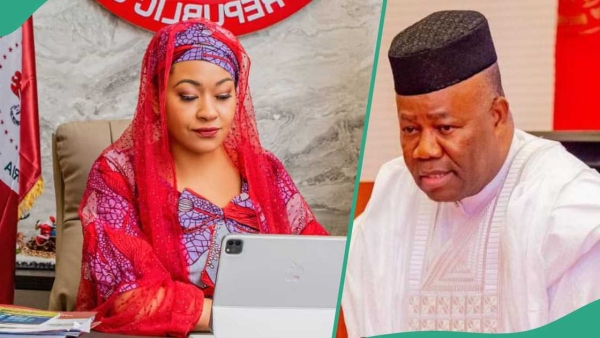
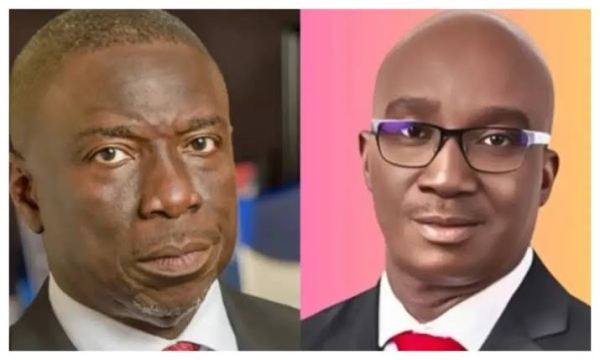
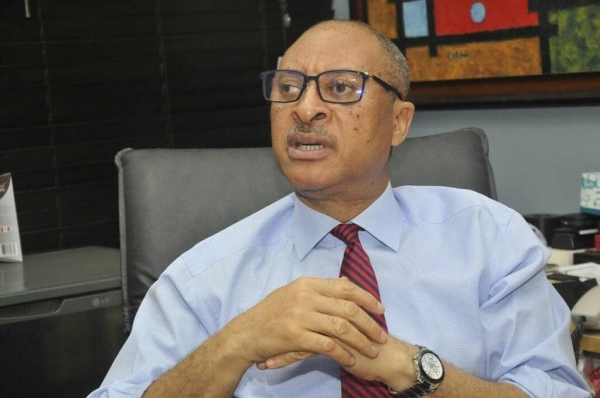

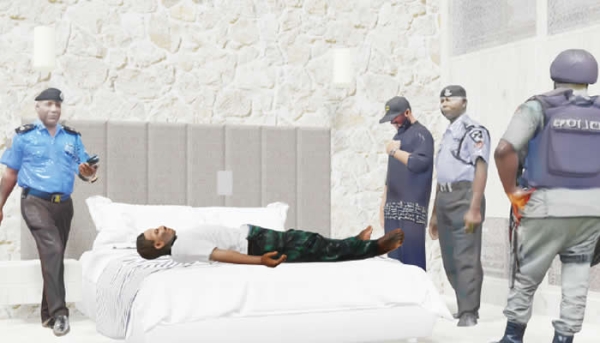
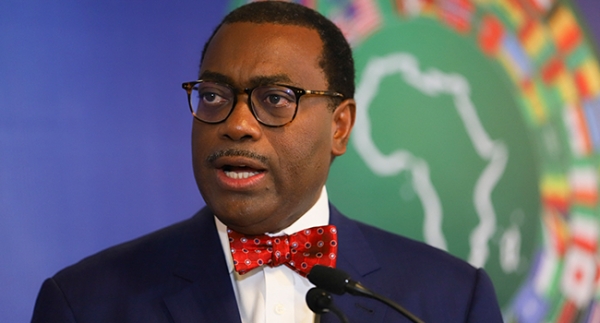
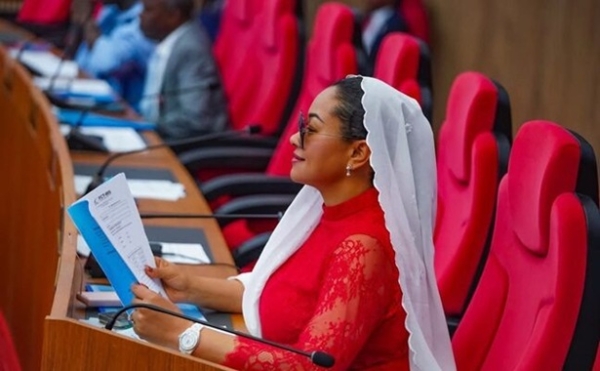
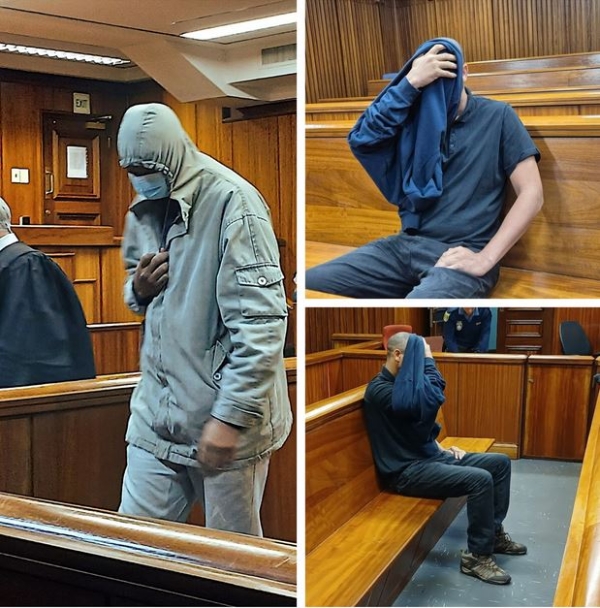
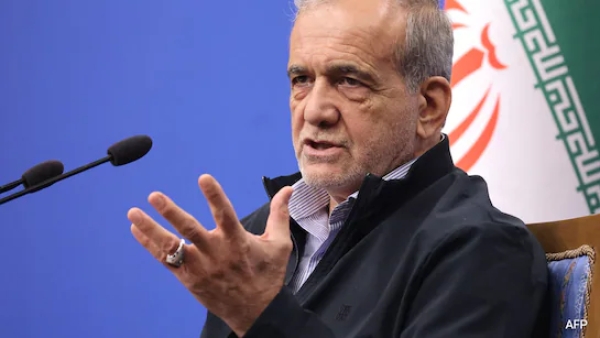
![[OPINION] Tinubu, Atiku, and Argentina: United by Pain, Divided by Rhetoric - Farooq A. Kperogi](/media/k2/items/cache/f8dce5cb80263ca6b540fcad159b8542_XL.jpg)
